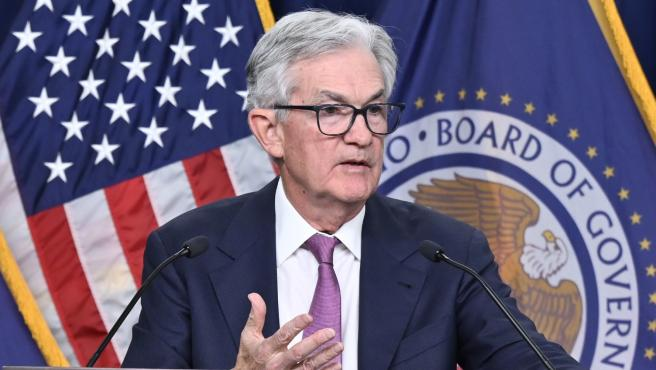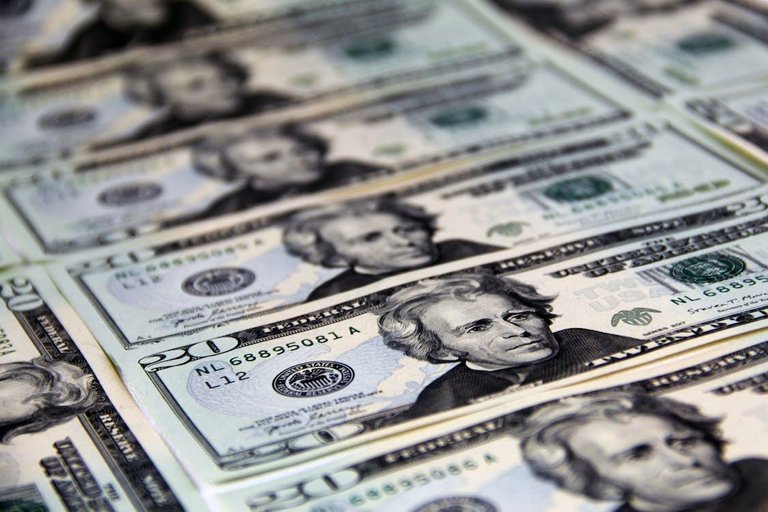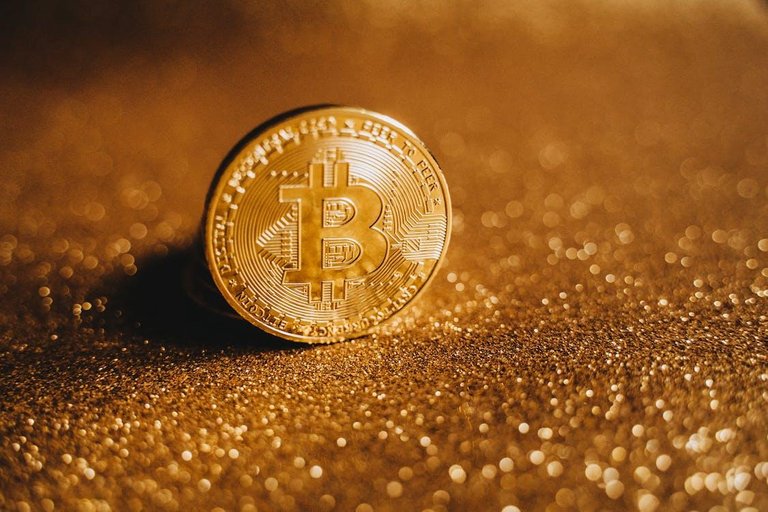We have a complicated situation in the current global economic sphere; US banks are on the verge of collapse, along with many other banks worldwide. The collapse and bankruptcy of the Silycon Valley Bank (SVB), has meant the piece that had to fall for the domino effect to be generated and the failures of all the traditional banking system will begin to be seen, with many other banks also failing in the US and the world, while many others soaking their beards in the face of what could be an epidemic of global financial collapse.
Sounds catastrophic, right?
Well it is, and it is also truly alarming that this is happening. Meanwhile, the Fed doesn't know what to do, with Powell teetering between a rock and a hard place, having to choose stabilizing the economy at a bank level or controlling inflation. Whatever Powell decides, it seems that today we will find out what will finally end up happening in this regard.

Jerome Powel- Chairman of the Federal Reserve (FED)Source
However, it is a real dilemma, because having to choose between those two options means that Powell finds himself in the dichotomy of having to decide between helping the banks or trying to maintain monetary stability; and it is a fact that he has to choose one, because both things cannot be done at the same time.
If he chooses to help the banks, then the Fed will have to print a lot of money, in order to send the help that banks need in order to give them the liquidity they need to stabilize and answer for the money funds to their savers. But this would imply a self-inflicted stab in terms of monetary policy, because it would generate high levels of inflation, with the disastrous consequences that this could have for the North American and world economy.
On the other hand, if you choose to maintain monetary stability, you should keep money issuance to a minimum, and leave banks to their own devices; with the consequent bankruptcy, economic destabilization and financial crisis that this will generate in too many areas. It's not easy, really, and I don't want to have to be in Jerome Powell's shoes right now.

The fact is that, at the moment, everything looks very bad
I mean, macroeconomically, everything looks very bad, and this convincingly demonstrates that many things must start to change in the US and the rest of the world, so that the global financial situation can improve.
Among the things that need to change in the world is the operating model of the traditional banking system, but also the definition we have of money. Because enough is enough, fiat money simply cannot be printed like little cards, at the whim of the governments every time they require it; nor can banks be allowed to play with savers' money without having a medium level of liquidity.
Because the way banks work today (and the way banks have always worked), is that they just take money from savers and invest it for profit, paying for a small amount of interest for their savers. But the problem is that the investments that banks make do not have a 100% guaranteed profit, that is, they are like any other type of investment, so they can give profits, or they can end very badly. If the investments of a bank (or series of banks) begin to go wrong for whatever reason, then the banking institutions begin to have liquidity problems, so they cannot liquidate savers when they request their money back.
This generates a negative and speculative wave, because then the alarms go off, since the rumors that this or that bank is losing liquidity, generates a chain reaction of thousands or millions of savers all going at the same time to withdraw their money from the banks. And even if the rumors of a bank's lack of liquidity are false or not, there is no bank in the world with enough level of liquidity to return all the money to all its savers at once.
Because even if the bank's investments are turning out as they should, the fact is that the money put into investments has a fixed period for it to earn profits, and otherwise, it generates losses. But none of that matters when people are outraged and start flocking to get their money out of banking institutions. And all this Powell knows, I know, you know, and so do many other people; but most people don't get it.

Meanwhile the price of Bitcoin is rising
Because if this financial crisis has had something good, it is to make us know that BTC is a better alternative to the traditional financial system. Bitcoin is rising in price in the year of its prehalving and great things are estimated in this regard this year.
In fact, yesterday the news broke that the ex-CTO of Coinbase (Balaji Srinivasan) has made a reckless bet recently, he bet exactly one million that the price of Bitcoin will reach one million dollars in 90 days. Whether or not it will be true is not relevant, because many other high profile figures have made similar bets and claims in the past (including the late John McAffee), and they have never come to pass. However, on this occasion, given everything that is happening financially in the US, the words of the ex-CTO of Coinbase have an even greater degree of credibility.
And I must clarify that I do not personally believe that Bitcoin will cost 1 million dollars in 90 days, but I do believe that it will rise in price steadily throughout this year, and the exact levels, neither I nor anyone else can know exactly. I also believe, in that sense, that the price of Bitcoin will reach $1 million one day, but it won't be anytime soon, and when it does, there won't be anyone predicting it recently.

What did you think of my article? Do you consider it a relevant topic? If you have something to contribute about it, I invite you to leave it in the comments. Thank you.

Posted Using LeoFinance Beta

